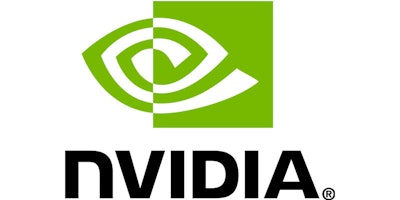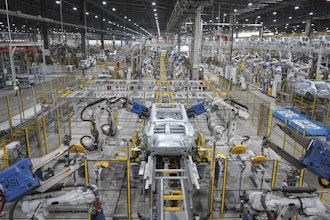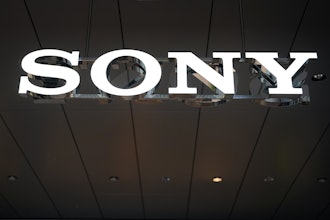
Leaders in factory automation and artificial intelligence (AI) computing are teaming up to advance AI for manufacturing.
Computer technology company NVIDIA and FANUC, a leader of industrial robots, announced on their websites earlier this week a collaboration to implement AI on the FANCU Intelligent Edge Link and Drive (FIELD) system. The move is hoped to increase robotics productivity and bring new capabilities to automated factories worldwide.
According to the release, the addition of AI to the FIELD system will allow robots to teach themselves to do tasks faster and more efficiently. What used to take one robot eight hours will now be able to be done by eight robots in one hour by learning together. The FIELD system is a platform meant to improve factory production and efficiency with advanced AI.
"The age of AI is here," Jen-Hsun Huang, founder and CEO of NVIDIA, said in the release. "GPU deep learning ignited this new wave of computing where software learns and machines reason. One of the most exciting creations will be intelligent robots that can understand their environment and interact with people. NVIDIA is delighted to partner with FANUC, the world leader of industrial robotics, to realize a future where intelligent machines accelerate the advancement of humanity."
According to the release, the breakthrough that is enabling the AI manufacturing is GPU-accelerated deep learning and FANCU will utilized a variety of “NVIDIA GPUs and deep learning software to enable AI in the cloud, the data center and embedded within devices.”
Capabilities will include deep learning robot training with NVIDIA GPUs, GPU-accelerated AI inference in FANCU Fog units used to drive robots and machines, and embedded systems for robots to do inference locally.
The International Federation of Robotics is predicting, by 2019, the deployment of industrial robots —used to make everything from cars to mobile phones — will increase to around 2.6 million units worldwide. An increase from the 1 million in 2015.
"Advances in artificial intelligence will allow robots to watch, learn and improve their capabilities," Kiyonori Inaba, Board Member, Executive Managing Officer and General Manager of FANUC said in the release. "Deep learning will also cut down the time-consuming programming of robot behavior. We are thrilled to be advancing the robotics revolution with NVIDIA."






















